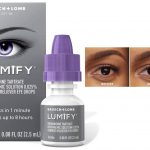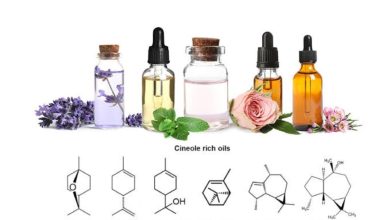Pros and Cons Of Berberine Supplementation

Berberine is a compound that has been used in traditional Chinese medicine for centuries. It is extracted from the roots, rhizomes, and stems of various plants, including Berberis species, such as Berberis vulgaris (barberry), Coptis chinensis (Chinese goldthread), and Hydrastis canadensis (goldenseal).
Historically, berberine-containing plants have been used to treat various ailments, including gastrointestinal infections, diarrhea, and inflammation. Traditional Chinese medicine has employed berberine for its antimicrobial, anti-inflammatory, and antidiarrheal properties.
In recent years, there has been growing interest in berberine as a dietary supplement due to its potential health benefits. Research studies have investigated berberine’s effects on various health conditions, such as diabetes, high cholesterol, cardiovascular diseases, and obesity.
Berberine has been found to have several mechanisms of action in the body. It can activate an enzyme called AMP-activated protein kinase (AMPK), which plays a crucial role in regulating cellular energy metabolism. This activation of AMPK can help improve insulin sensitivity, leading to better blood sugar control and potential benefits for people with diabetes.
Furthermore, berberine has been shown to inhibit an enzyme called PCSK9, which can reduce the levels of LDL cholesterol (often referred to as “bad” cholesterol) in the blood. It may also have anti-inflammatory and antioxidant properties, which can contribute to its potential cardiovascular benefits. Although berberine has a long history of traditional use and shows promising effects in research studies, it is essential to note that the scientific evidence is still evolving. In this article, we shall be discussing the pros and cons of berberine supplements and how it matches with Ozempic.
Pros and Cons Of Berberine Supplementation
Pros of Berberine Supplement:
1. Blood sugar control: Berberine has been extensively studied for its effects on blood sugar regulation. Research suggests that it can improve insulin sensitivity, increase glucose uptake in cells, and reduce glucose production in the liver. These mechanisms can help lower blood sugar levels, making berberine potentially beneficial for individuals with diabetes or prediabetes.
2. Cholesterol management: Berberine has demonstrated the ability to lower LDL cholesterol levels, often referred to as “bad” cholesterol, while increasing HDL cholesterol levels, known as “good” cholesterol. It achieves this by inhibiting an enzyme called PCSK9, which plays a role in cholesterol metabolism. By reducing LDL cholesterol and increasing HDL cholesterol, berberine can have a positive impact on cardiovascular health and may help reduce the risk of heart disease.
3. Weight management: Several studies have investigated the potential weight loss benefits of berberine. It appears to influence multiple factors involved in weight regulation, including metabolism, fat storage, and appetite control. Berberine has been shown to activate an enzyme called AMP-activated protein kinase (AMPK), which helps regulate energy metabolism and promotes fat oxidation. It may also affect hormones that regulate hunger and satiety, leading to reduced food intake. However, it’s important to note that individual responses may vary, and berberine should not be considered a standalone solution for weight loss.
4. Anti-inflammatory effects: Chronic inflammation is associated with various health conditions, including cardiovascular disease, diabetes, and certain types of cancer. Berberine has been shown to possess anti-inflammatory properties by inhibiting the production of pro-inflammatory molecules and modulating immune responses. By reducing inflammation, berberine may help alleviate symptoms and contribute to overall health.
5. Antimicrobial activity: Berberine has a long history of use as an antimicrobial agent in traditional medicine. It has demonstrated effectiveness against a broad spectrum of pathogens, including bacteria, viruses, fungi, and parasites. Berberine exerts its antimicrobial effects by interfering with microbial cell membranes and essential cellular processes, inhibiting their growth and replication. However, it’s worth noting that further research is needed to determine optimal dosages and assess the clinical implications of berberine’s antimicrobial properties.
6. Antioxidant properties: Berberine acts as an antioxidant, meaning it can scavenge harmful free radicals and protect cells from oxidative damage. By reducing oxidative stress, berberine may help prevent cellular damage and support overall health.
7. Gut health support: The gut microbiome, composed of trillions of microorganisms in the digestive tract, plays a crucial role in health and disease. Berberine has been found to modulate the gut microbiota by promoting the growth of beneficial bacteria (such as Akkermansia muciniphila) while inhibiting the growth of harmful pathogens. A healthy gut microbiome is associated with improved digestion, nutrient absorption, and immune function.
8. Liver health benefits: Berberine has been studied for its potential protective effects on the liver. It may help reduce liver inflammation, prevent liver damage caused by toxins or alcohol consumption, and improve liver function. These properties make berberine a subject of interest in liver disease research, including conditions like non-alcoholic fatty liver disease (NAFLD).
9. Cognitive function: Some studies suggest that berberine may have neuroprotective effects and could potentially support brain health and cognitive function. It has been shown to inhibit the formation of beta-amyloid plaques, which are associated with Alzheimer’s disease, and to enhance memory and learning abilities in animal studies. However, more research is needed to establish the precise mechanisms and potential benefits of berberine for cognitive health in humans.
10. Potential anticancer properties: Preliminary studies have indicated that berberine may possess anti-cancer properties. It has been found to inhibit the growth and spread of certain types of cancer cells, including breast, lung, liver, and colon cancers. Berberine’s anticancer effects are believed to be mediated through various mechanisms, such as inducing apoptosis (programmed cell death), inhibiting tumor cell proliferation, and reducing inflammation. However, it’s important to note that further research, including clinical trials, is necessary to determine the full potential of berberine as an anticancer agent.
Cons of Berberine Supplement:
1. Digestive side effects: Berberine can cause gastrointestinal symptoms such as diarrhea, constipation, abdominal pain, or nausea in some individuals. These side effects are generally mild and temporary but may require dose adjustment or discontinuation of supplementation in sensitive individuals.
2. Drug interactions: Berberine can interact with certain medications, potentially affecting their effectiveness or increasing the risk of side effects. For example, berberine may potentiate the effects of blood sugar-lowering medications, leading to hypoglycemia (low blood sugar). It can also interact with anticoagulant medications, immunosuppressants, and drugs metabolized by liver enzymes. It is crucial to consult a healthcare professional before starting berberine supplementation, especially if you are taking other medications, to avoid potential interactions.
3. Pregnancy and breastfeeding: The safety of berberine during pregnancy and breastfeeding has not been thoroughly studied. As a precautionary measure, it is generally recommended to avoid berberine supplementation during these periods, as its effects on the developing fetus or newborn are not well understood.
4. Potential cardiovascular effects: While berberine has shown beneficial effects on cardiovascular health, high doses or prolonged use may have adverse effects on heart function in some individuals. Berberine can prolong the QT interval, which is a measure of the electrical activity of the heart. Individuals with pre-existing heart conditions or those taking medications that also prolong the QT interval should exercise caution and consult with a healthcare professional before using berberine.
5. Blood pressure effects: Berberine may lower blood pressure, which can be advantageous for individuals with hypertension. However, for individuals with already low blood pressure or those taking blood pressure-lowering medications, it may further decrease blood pressure to undesirable levels. Close monitoring and adjustment of medication dosages may be necessary in such cases.
6. Allergic reactions: Some individuals may experience allergic reactions to berberine or plants containing it. Symptoms can include rash, itching, swelling, or difficulty breathing. If you have a known allergy to berberine or plants in the Berberidaceae family, it’s important to avoid berberine supplements.
7. Limited long-term safety data: While berberine has been used for centuries in traditional medicine, long-term safety data from rigorous clinical studies is still limited. Most studies have examined short-term effects and focused on specific health conditions. More research is needed to fully understand the long-term safety profile of berberine supplementation.
8. Quality control: The quality and purity of berberine supplements can vary among different brands and manufacturers. It’s crucial to choose products from reputable manufacturers that adhere to good manufacturing practices and have their products independently tested for quality and purity.
9. Individual variability: As with any dietary supplement, individual responses to berberine can vary. While some individuals may experience significant benefits, others may not respond as favorably. Factors such as genetics, underlying health conditions, and lifestyle factors can influence the efficacy of berberine supplementation.
10. Lack of conclusive evidence: Despite promising research findings, it’s important to acknowledge that the evidence for berberine’s effectiveness in various health conditions is still evolving. While numerous preclinical and clinical studies have shown positive results, more high-quality research, including large-scale clinical trials, is needed to establish berberine’s effectiveness, optimal dosages, and long-term benefits for specific health conditions.
Berberine Supplements Vs. Ozempic
Berberine supplements offer a natural approach to managing blood sugar levels in individuals with type 2 diabetes. Berberine has shown promise in improving insulin sensitivity, reducing glucose production in the liver, and increasing glucose uptake in cells. It also has additional potential benefits such as cholesterol management, weight management, anti-inflammatory effects, and antimicrobial activity. Berberine supplements are generally available over-the-counter without a prescription, making them more accessible to individuals seeking alternative options.
Ozempic, on the other hand, is a prescription medication that belongs to the class of GLP-1 agonists. It has undergone extensive clinical trials and has demonstrated significant benefits in managing blood sugar levels, promoting weight loss, and improving cardiovascular outcomes in individuals with type 2 diabetes. Ozempic works by mimicking the action of the hormone GLP-1, which helps stimulate insulin secretion, reduce glucagon secretion, slow gastric emptying, and promote a feeling of fullness. It is administered once a week via subcutaneous injection. While Ozempic has shown efficacy in clinical studies, it is important to consider the potential side effects, including gastrointestinal symptoms and rare but serious complications such as pancreatitis and kidney problems. Ozempic requires a prescription, and its use should be under the guidance of a healthcare professional.
In summary, berberine supplements offer a natural approach with potential benefits in managing blood sugar levels, but the clinical evidence is still developing. They may be suitable for individuals seeking alternative options or who have difficulty accessing prescription medications. Ozempic, as a prescription medication, has undergone extensive clinical trials and has demonstrated significant benefits in managing blood sugar levels and improving cardiovascular outcomes in individuals with type 2 diabetes. However, it should be used under the guidance of a healthcare professional, considering its potential side effects and individual circumstances. The choice between berberine supplements and Ozempic depends on factors such as individual needs, preferences, access to healthcare, and guidance from a healthcare professional





